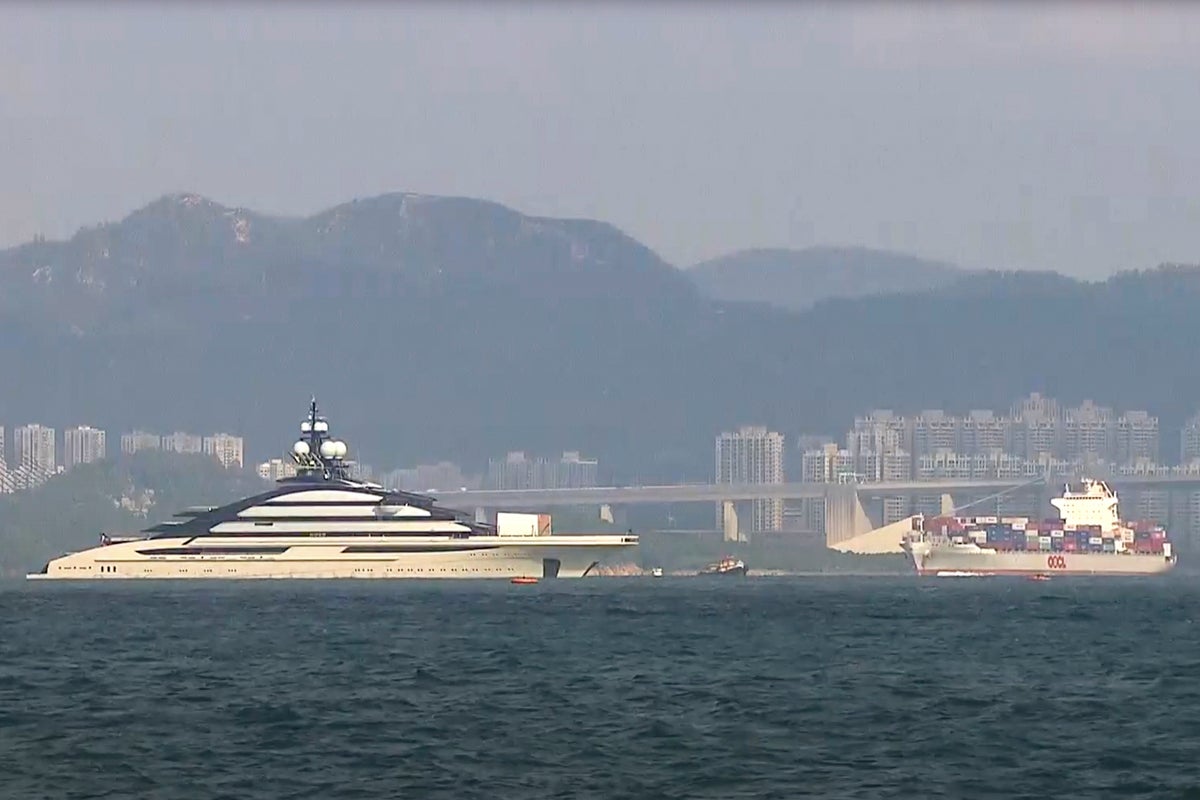
The U.S. warned Hong Kong on Monday that its status as a financial center could be affected if it acts as a safe haven for sanctioned individuals, days after a luxury yacht connected to a sanctioned Russian tycoon docked in the city.
“The possible use of Hong Kong as a safe haven by individuals evading sanctions from multiple jurisdictions further calls into question the transparency of the business environment,” said a U.S. State Department spokesperson in a statement.
The State Department spokesperson also said the city’s reputation as a financial center “depends on its adherence to international laws and standards.”
The statement came days after the $500-million superyacht Nord, allegedly owned by Russian tycoon Alexey Mordashov, docked in Hong Kong’s harbor on Wednesday following a week-long journey from the Russian city of Vladivostok.
Mordashov, who is believed to have close ties to Russian president Vladimir Putin, was sanctioned by the U.S., U.K. and the European Union in February after Russia’s invasion of Ukraine.
He is one of Russia’s richest men with an estimated wealth of about $18 billion, as well as the main shareholder and chairman of Severstal, Russia’s largest steel and mining company. Mordashov has attempted to challenge the sanctions against him in European courts.
Hong Kong’s marine authorities have said they do not implement “unilateral sanctions imposed by other jurisdictions,” even though it implements and enforces sanctions imposed by the United Nations Security Council.
Meanwhile, U.S. and European authorities have seized over a dozen yachts belonging to sanctioned Russian tycoons to prevent them from sailing to other ports that are not affected by the sanctions.
Russian oligarchs have begun docking their yachts at ports in places like Turkey, which has maintained diplomatic ties with Russia since the war began.
The Nord measures 141.6 meters (464.6 feet), has two helipads, a swimming pool and 20 cabins. The yacht is currently sailing under a Russian flag.
The State Department spokesperson also warned that U.S. companies “increasingly view Hong Kong’s business environment with wariness” amid Beijing’s undermining of Hong Kong’s high degree of autonomy and its freedoms.
The semi-autonomous city’s status as an international business hub and financial center has suffered in recent years after Beijing imposed a tough national security law on the city, aimed primarily at stamping out dissent following months of anti-government protests in 2019.
Critics say the security law, which in certain cases allows for suspects to be transferred to mainland China for trial in its opaque legal system, could threaten Hong Kong’s rule of law.
The city's lengthy COVID-19 restrictions have also hampered tourism and business travel, leading some international companies to relocate their offices out of the city. Tens of thousands of residents have also left Hong Kong.







